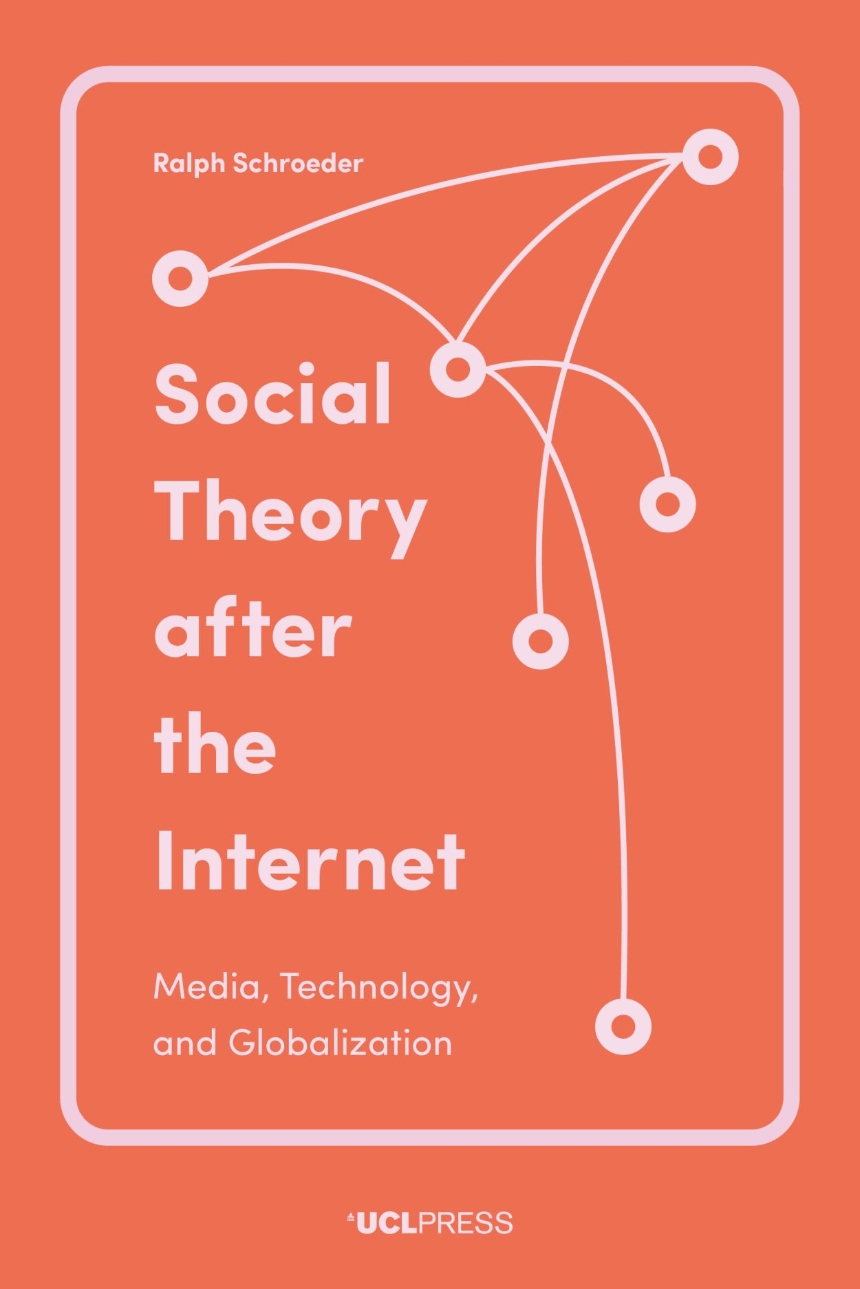9781787351233
9781787351240
The internet has fundamentally transformed society in the past twenty-five years, yet existing theories of communication have not kept pace with the digital world. This book focuses on everyday effects of the internet—including information-seeking, big data, and the growing importance of smartphone use—to explain how the internet surpasses traditional media. Synthesizing global perspectives, Ralph Schroeder posits a theory on the internet’s role, and how both technological and social forces shape its significance.
220 pages | 2 illustrations | 6.14 x 9.21 | © 2018
Free digital open access editions are available to download from UCL Press.
Anthropology: Cultural and Social Anthropology
Sociology: General Sociology
Table of Contents
"1. The internet in theory
1.1 Theories of media, new and old
1.2 Summary of the argument
1.3 The autonomy of the media (sub)system
1.4 The role of the media in politics, culture and the economy: separate and different
1.5 A limited attention space
1.6 Who’s afraid of technological determinism?
1.7 Chapter overview
2. Media systems, digital media and politics
2.1 Theories of digital media and politics
2.2 Media systems in Sweden and America
2.3 Digital media and politics in Sweden and America
2.4 Media systems in China and India
2.5 Digital media and politics in China and India
3. Digital media and the rise of right-wing populism
3.1 Trump’s ascent via Twitter
3.2 The Sweden Democrats’ alternative media
3.3 Modi’s religious nationalism on Twitter
3.4 Containing online nationalists in China
3.5 Prospects for mediated politics 78
4. The internet in everyday life I: sociability
4.1 Tethered togetherness
4.2 The spread of social media
4.3 Sociability and social divides
4.4 Visual co-presence
4.5 Alone or together?
4.6 Globalizing sociability
5. The internet in everyday life II: seeking information
5.1 A new information infrastructure
5.2 Seeking information
5.3 Search engine uses
5.4 Search engines as gatekeepers
5.5 Does Google shape what we know?
5.6 The Web of information
5.7 Is the Web global?
5.8 Wikipedia
5.9 Information seeking and gatekeeping
6. Big data: shaping knowledge, shaping everyday life
6.1 Defining big data
6.2 Advancing academic knowledge about digital media
6.3 The uses and limits of big data in the social sciences
6.4 Facebook’s ‘Brave New Worlds’
6.5 Targeting publics, and the uses and limits of big data in everyday life
6.6 Big data and policy in different media systems
7. Futures
7.1 Media, globalization, technology
7.2 The uses and limits of theory
7.3 Technological determinism revisited
7.4 Mediated politics
7.5 Information needs and an open culture of information
7.6 Big data and targeting
7.7 Digital versus traditional media
7.8 Separate changes and limited impact
7.9 What is to be done?"
1.1 Theories of media, new and old
1.2 Summary of the argument
1.3 The autonomy of the media (sub)system
1.4 The role of the media in politics, culture and the economy: separate and different
1.5 A limited attention space
1.6 Who’s afraid of technological determinism?
1.7 Chapter overview
2. Media systems, digital media and politics
2.1 Theories of digital media and politics
2.2 Media systems in Sweden and America
2.3 Digital media and politics in Sweden and America
2.4 Media systems in China and India
2.5 Digital media and politics in China and India
3. Digital media and the rise of right-wing populism
3.1 Trump’s ascent via Twitter
3.2 The Sweden Democrats’ alternative media
3.3 Modi’s religious nationalism on Twitter
3.4 Containing online nationalists in China
3.5 Prospects for mediated politics 78
4. The internet in everyday life I: sociability
4.1 Tethered togetherness
4.2 The spread of social media
4.3 Sociability and social divides
4.4 Visual co-presence
4.5 Alone or together?
4.6 Globalizing sociability
5. The internet in everyday life II: seeking information
5.1 A new information infrastructure
5.2 Seeking information
5.3 Search engine uses
5.4 Search engines as gatekeepers
5.5 Does Google shape what we know?
5.6 The Web of information
5.7 Is the Web global?
5.8 Wikipedia
5.9 Information seeking and gatekeeping
6. Big data: shaping knowledge, shaping everyday life
6.1 Defining big data
6.2 Advancing academic knowledge about digital media
6.3 The uses and limits of big data in the social sciences
6.4 Facebook’s ‘Brave New Worlds’
6.5 Targeting publics, and the uses and limits of big data in everyday life
6.6 Big data and policy in different media systems
7. Futures
7.1 Media, globalization, technology
7.2 The uses and limits of theory
7.3 Technological determinism revisited
7.4 Mediated politics
7.5 Information needs and an open culture of information
7.6 Big data and targeting
7.7 Digital versus traditional media
7.8 Separate changes and limited impact
7.9 What is to be done?"

